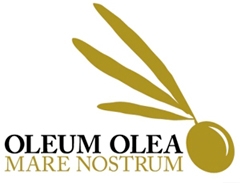Regulations and types of olive oil
Extra virgin olive oil is considered to be the highest category because it is obtained from the best olives, and only through mechanical methods, resulting in an oil with excellent organoleptic characteristics and that can be consumed directly uncooked with all of its aroma and unique flavor. There is a broad regulation at the Spanish and European level that aims to guarantee quality and transparency in the commercialization of the different types of olive oil based on the process of extraction and the resulting acidity:
• Extra virgin olive oil: extracted only by the use of mechanical methods with a maximum acidity content of 0.8%.
• Virgin olive oil: extracted only by the use of mechanical methods with a maximum acidity content of 2%.
• Olive oil: Contains a mix of virgin olive oils and refined oils made from imperfect oils through chemical or thermal processes, with a maximum acidity content of 1.5%.
To offer you more information on the regulations or different types of olive oil that there can be, as well as any other information relating to the world of oil, you can search on the following webpages: Additional information about olive oil at Wikipedia (http://en.wikipedia.org/wiki/Olive_oil), the Spanish Agency of consumption, food security, and nutrition (http://www.aecosan.msssi.gob.es/), on the website of the Ministry of Agriculture, Food, and Environment (http://www.magrama.gob.es/en/), IRTA: Análisis sensorial de aceite virgen de oliva And finally, Líneas I+D+T. All of these links are a source that should serve to increase knowledge about olive oil.
Modification of the regulation relating to the characteristics of olive oils and pomace oils and the methods of analysis.
The Commission Implementing Regulation (EU) no. 299/2013 of March 26, 2013, is published, which modifies the Regulation (EEC) no. 2568/91 relating to the characteristics of olive oils and pomace oils and on their methods of analysis.
A new article, 2 bis, is added to Regulation (EEC) no. 2568/91, which requires member states to carry out selective inspections based on a risk analysis and with the appropriate frequency. The member states must send the Commission a report on the application and results of the inspections.
Another new article, 7 bis, is added, which requires the physical persons or legal entities that possess olive oil and pomace oil from the time of extraction until bottling, for any professional or commercial purpose, to have a register of arrivals and departures for each category of these oils.
Date of publication: 05/04/2013
Date of modification: 19/04/2013

CONTACT US
Corporate Manager:
Sr. José Antonio Jorda
Phone 00 34 618 125329
jajorda@oleumolea.com
Sales Manager:
Sònia Peransi Melich
Phone 0034 638 020567
soniaperansi@oleumolea.com
Email
info@oleumolea.com
Phone 977406495
Fax 977406417
Location in Google Maps
Copyright © 2014 Oleum Olea Mare Nostrum
|
LEGAL | Informative Old Site Web | Google+.


FOLLOW US
WE KNOW EACH OTHER
My accountContact us